What have we learned about digital engagement?
Edited on
04 June 2021We share our lessons from a year of digital meetings. There’s nothing to fear, explains URBACT expert Sally Kneeshaw.
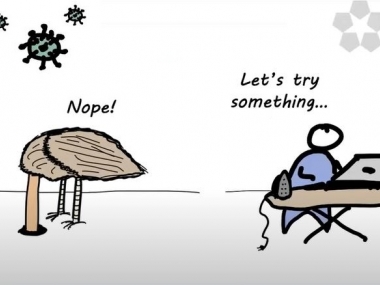
As the pandemic has proved to be longer lasting than originally envisaged, URBACT has continued to pioneer tailored digital support to cities. The aim? To continue to maximise the potential of both cross-border exchange between cities and local multi-stakeholder cooperation despite the challenges.
Here we share how our offer has evolved over the past year and what we have learnt about upskilling urban professionals in digital interaction. Don’t forget to also check out the URBACT Toolbox for video guidance on these topics: engaging stakeholders online.
Note: This article builds on the series we have written over the past year reporting on how URBACT has adapted to the ‘new normal’ caused by the inability to meet face to face. Take a moment to remember how things looked and felt in April 2020, how it was a case of new times, new tools by June 2020, the challenges of delivering our delayed summer university 100% online in September and our associated guide to online facilitation.
Digital Experts and Digital Fridays
Back in September 2020, we realised that our networks of cities would not be able to ‘get back to the old normal’ for the winter at least, so we introduced a new service called Digital Support Expertise (DSE). The aim was for our city partners to maintain momentum in the action planning process and keep the focus on participation and integration – overcoming the challenges of sustaining local stakeholder engagement through virtual working.
How to run a creative digital workshop with your stakeholders – from the URBACT Toolbox
We called out to our Lead Experts for advanced digital facilitation and coaching skills. The result was the formation of a super-talented core team of URBACT Digital Support Experts made up of Mary Dellenbaugh-Losse, Ian Graham and Liat Rogel, assisted by Kristijan Radojcic from the URBACT Secretariat. This article is based on our collaboration over the past 6 months and shared reflections on the DSE impact.
The DSE offer has had two main elements: tailored support for each network and a series of ‘Digital Fridays Breakfasts’ which were targeted at partners in the current URBACT Action Planning Networks, but open to all.
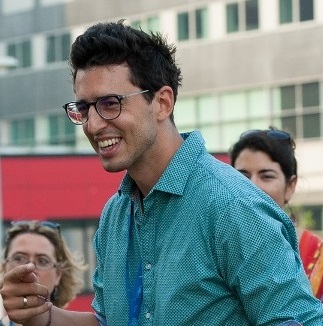 “This digital support came at the most crucial time when we were dealing with great uncertainty about how to move forward with the extended pandemic.” Kristijan Radojcic, URBACT Secretariat. (photo on the right)
“This digital support came at the most crucial time when we were dealing with great uncertainty about how to move forward with the extended pandemic.” Kristijan Radojcic, URBACT Secretariat. (photo on the right)
The tailored support for networks has been based on an initial diagnostic exchange and a menu of available support including designing online meetings; signposting to the most appropriate digital tools; coaching in the use of those tools; and acting as online ‘event buddies’. Put together, these strategies enabled a team approach at events.
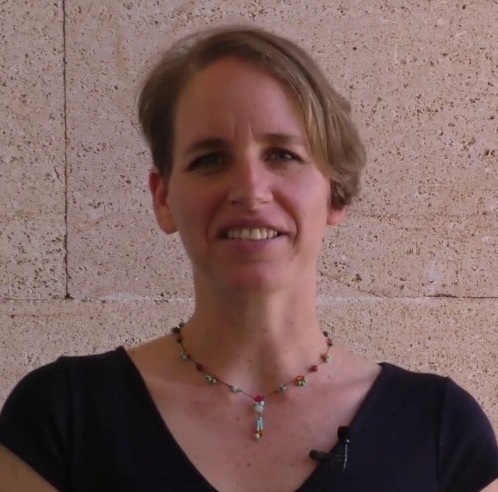 “Some ULGs stopped meeting in the first months of the pandemic, waiting for this to pass and come back to normal. Our training sessions assisted getting back to meetings and going ahead with the process.” Liat Rogel, URBACT Digital Support Expert. (photo on the left)
“Some ULGs stopped meeting in the first months of the pandemic, waiting for this to pass and come back to normal. Our training sessions assisted getting back to meetings and going ahead with the process.” Liat Rogel, URBACT Digital Support Expert. (photo on the left)
The series of nine ‘Digital Friday Breakfasts’ were one-hour sessions providing a mix of introductory overviews and ‘hands-on’ sessions covering a range of digital engagement tools and techniques. Sessions looked at how to run digital local group meetings and workshops, managing digital fatigue, agenda design, icebreakers and specific tools such as Mentimeter and Miro.
The aim was ultimately to make digital meetings more interactive and get out of a standard and stiff webinar mindset.
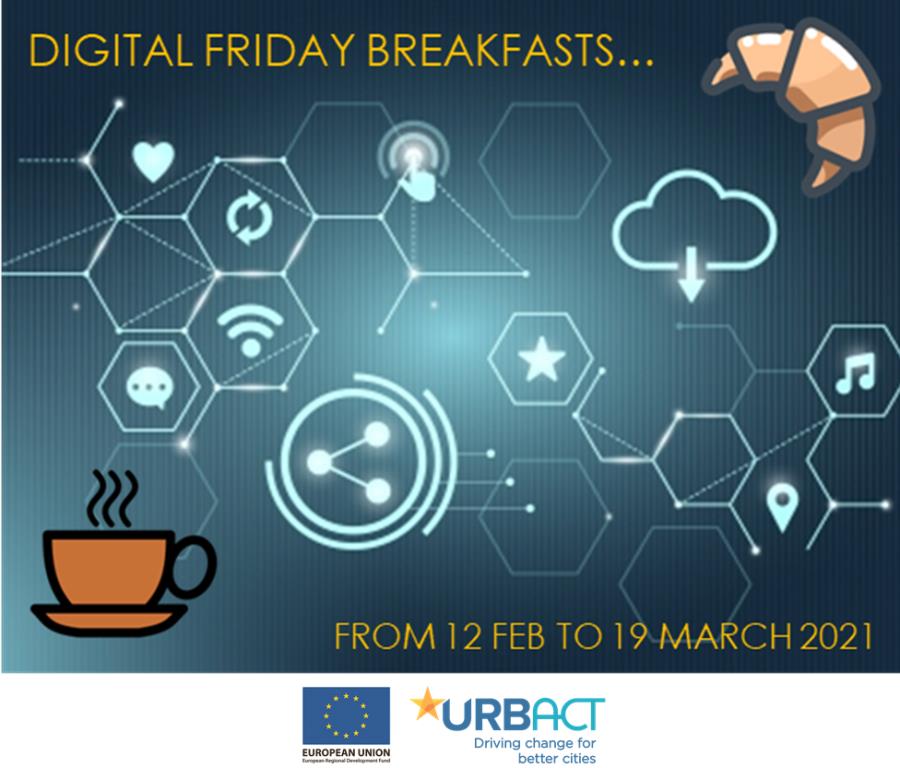 How did it go?
How did it go?
In terms of reach, 14 networks have taken up the customised offer. They found that a good rhythm of support has been to hold one meeting of training, then about two weeks to host URBACT Local Group meetings and finally a feedback meeting. This has allowed for checks on how confident and happy partners are and how they felt their local meetings went.
The process has definitely helped in progressing with Integrated Action Plans. In many cases the ULG met more frequently than before (to keep the meetings short) and collaboration became much stronger.
“We are happy to receive support like this, other EU programmes do not offer such a rich scope of trainings, if they offer any at all.” Network participant.
“The training allowed us to maintain a healthy dynamic online with more vibrant and interactive meetings and ability to share and gather ideas for the Action Plan.” Network participant.
The Friday Digital Breakfasts were also a big success. The three overview sessions attracted a total of 323 participants from 125 cities and 27 countries - 23 EU (MS + Norway), UK, Uganda and Mozambique. In addition, each of the six ‘hands-on’ sessions were attended by 35-60 people looking to experience and develop really practical skills.
“The icebreakers opened my mind and helped me explore creative solutions to engage with people virtually.” Breakfast participant.
“We used the different tips & hints to help with the different stages of the process, also learned which tools to use, for different purposes… So far we used both MIRO and Mentimeter.” Breakfast participant.
More than anything, however, the Digital Fridays Breakfasts kept the URBACT community spirit alive. Being held on six Fridays in a row brought positive feelings and much-needed psychological support. In line with this recent article on Transnational cooperation in a pandemic from Christophe Gouache about the Active Citizens network, the digital support expertise exemplified both empathy and pragmatism. It offered opportunities to connect, care and help in very practical ways.
In addition to the sample quotes provided, the overall feedback has been very positive. Ninety two percent of respondents to the follow-up survey said the sessions had been useful and 100% reported that they are using the new tools. Use of the tools even held up in more complex contexts, including with those who were initially sceptical.
And what did we learn as a Programme?
Our experiences in adjusting our own meetings and in providing support to our networks of cities has led to a number of key messages emerging:
- Digital engagement requires new facilitation skills. Good digital facilitation is not just about choosing the right online tools, but also learning how to run better workshops and upskilling of facilitation and workshop design generally. This should be based on a good understanding of both the audience and the specific objectives of the session and needs to take account of fading stakeholder enthusiasm - Zoom fatigue is real!
How to maintain stakeholder's interest & manage digital fatigue – from the URBACT Toolbox
- Everyone has the ability to be competent in digital working. Despite the perceptions of difficulty, digital skills are not intrinsically harder than anything else - just less familiar! It’s often mostly about confidence and getting used to something new.
- Build knowledge through experience. We have found that a key success factor for building confidence as digital facilitators has been to provide positive digital experiences that people can then replicate in their own environment. Live training and interaction was more beneficial than written guidance – particularly for those in greatest need.
- Digital confidence can come surprisingly quickly. Our experiences also show that people can very quickly overcome the challenges of using new digital tools and start to demonstrate the confidence to apply interactive techniques in online meetings. Often it is largely about a willingness to start and to really take up the invitation to be creative and innovative.
- Digital meetings can include and exclude in new ways. It is right to think about people who cannot access online meetings and to explore appropriate provisions for their engagement - digital barriers still exist for many. However, digital meetings can also improve inclusivity for many people who are not able or cannot afford to spend two hours travelling to join a one-hour physical meeting.
What are the challenges for the future?
Remote working will continue to be a critical building block in the URBACT toolbox for transnational cooperation and local stakeholder engagement - one which permits cooperation, collaboration, learning and exchange without sacrificing the environment once the pandemic subsides.
Nevertheless, as well as the challenges of overcoming digital barriers and the real risks of ‘Zoom fatigue’, perhaps the biggest challenge on the horizon is how to organise effective ‘hybrid meetings’ – those mixing physical and online aspects.
A hybrid version of any interaction creates a two-tier system by definition. Benefits can include increased reach and accessibility, the opportunity to be joined by external speakers who wouldn’t travel otherwise, and for more ULG members to be present in certain sessions. But for transnational meetings and city visits, those who attend in person get a very different experience – not least in terms of the incidental contacts, the extra-sensory engagement and the richer social and spatial interactions.
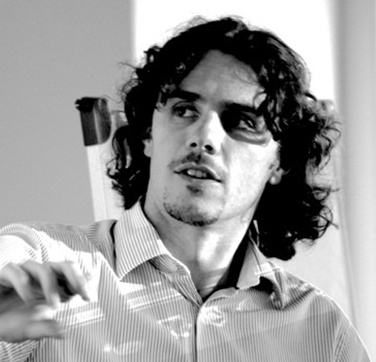 “With three interaction types, rather than just one, the design needs to be carefully thought out. It also needs to be acknowledged that a good hybrid meeting will feel different for those who are there in person - attempting to design a physical meeting and then “dial-in” others will not work well.” URBACT Digital Expert, Ian Graham. (photo on the left)
“With three interaction types, rather than just one, the design needs to be carefully thought out. It also needs to be acknowledged that a good hybrid meeting will feel different for those who are there in person - attempting to design a physical meeting and then “dial-in” others will not work well.” URBACT Digital Expert, Ian Graham. (photo on the left)
The URBACT programme will strive to meet this and any other emerging challenges in this new digital environment to make sure the integrated and participatory approach - that forms the foundations of sustainable urban development - is not sacrificed by our inability to meet each other face to face.
Notably, URBACT is now developing guidance and training on Virtual Study Visits, particularly with an eye on the launch of the new URBACT Transfer Mechanism networks.
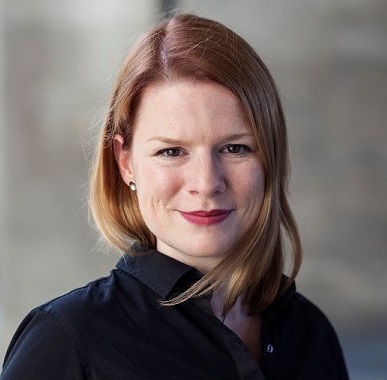 “It's exciting, because we are really on the cutting edge of something completely new. I am hopeful that we will be able to use digital and remote means to share and learn together well after the travel and contact restrictions are eased.” URBACT Digital Expert, Mary Dellenbaugh Losse. (photo on the right)
“It's exciting, because we are really on the cutting edge of something completely new. I am hopeful that we will be able to use digital and remote means to share and learn together well after the travel and contact restrictions are eased.” URBACT Digital Expert, Mary Dellenbaugh Losse. (photo on the right)
With thanks to the Digital Support Experts for their inputs.
For more information
Check out the tips and tools on engaging stakeholders, visit that section of the URBACT toolbox.
Although not produced with the intention of wide public dissemination, do feel free to watch recordings of the Friday Digital Breakfasts if you would like to know more and to develop your own digital skills.
And last, but not least, why not register now to join us for the 2021 URBACT City Festival (15-17 June) - our latest 100% online event! We’ll be exchanging the lessons and experiences from our Transfer Network cities, but there will also be digital booths of our networks and partners, an online social evening, speed networking sessions and a digital wellness tent! Come along to be part of the URBACT community and experience it for yourself!
Cover illustration: Ian Graham
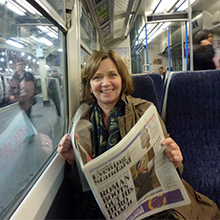 Submitted by Sally Kneeshaw on
Submitted by Sally Kneeshaw on



